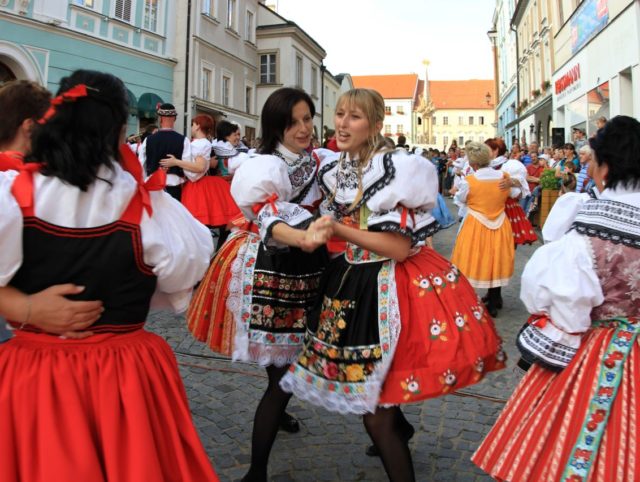The Czech Republic recorded the highest employment rate for non-EU migrants, with fellow patriotic Visegrád nations not far behind, according to new EU statistics showing France and Belgium at the bottom of the pile.
Data published by Eurostat Monday showed that 63 percent of non-EU migrants aged 20 to 64 were in employment last year, compared to 73 percent of people of working age who were born within the bloc.
While the Czech Republic has been characterised by some as a bastion of racism and intolerance due to its refusal to take part in EU asylum seeker-sharing schemes, and criticism of Brussels’ open borders approach to illegal immigration, it recorded the highest employment rate for non-European migrants, at 79 percent, followed by Romania where the figure stood at 76 percent.
The country’s fellow Visegrád nations, all of which have taken a stand against mass third world migration and resisted demands from Brussels to resettle illegal immigrant arrivals living in Greece and Italy at taxpayers’ expense, saw similarly impressive employment rates for non-EU migrants, standing at 73 in Poland, 72 in Hungary, and 71 in Slovakia.
Czech PM: EU Must Turn Back Boats, Resettling Migrants Is ‘Road to Hell’ https://t.co/CEYltK6UtL
— Breitbart London (@BreitbartLondon) July 17, 2018
Although the high employment rates suggest their integration of non-European migrants has gone relatively well compared to other EU countries, the Visegrád nations have been vilified as anti-democratic, “authoritarian” backwaters in international commentary, and threatened with punishment and sanctions by Brussels for their refusal to follow their Western neighbours down the path of liberal multiculturalism.
The findings speak to the belief, once widely held, that integration of new migrants is best managed when arrivals come at a low, manageable level, and that high levels of immigration can cause self-segregation among arriving communities.
According to Eurostat, Greece recorded one of the lowest employment rates for migrants born outside Europe, at 54 percent; however, the figure was not too dissimilar to the 58 percent rate seen among native-born workers in the debt crisis-hit Hellenic nation.
At the absolute bottom for employment rates among non-EU migrants was Belgium, at 52 percent compared to 71 percent of Belgian-born individuals of working age in employment, followed by France — where employment among migrants born outside Europe is at 56 percent compared to 73 percent for people born in France.
The neighbouring nations, both of which have suffered a number of Islamic terror attacks in recent years, have seen significant demographic change take place as a result of years of mass immigration from the third world, a huge chunk of which has been through family reunification rules.
Majority Of Muslim Students Think Brussels Terrorists Are 'Heroes' Say Teachers https://t.co/pDd2avnrOv pic.twitter.com/WuLM8vhHlM
— Breitbart London (@BreitbartLondon) April 11, 2016
Earlier this year, liberal senator Alain Destexhe blasted an unaccountable political elite consisting of “the multiculturalist lobby which dominates universities, NGOs, public institutions and the media” for bringing about a “profound transformation” of Belgian society through immigration, without any public input.
Liberal media outlets reported Belgian scepticism towards mass migration with some disgust in January after a study revealed two-thirds of the indigenous population believe their homeland has felt “increasingly invaded” as a result of the influx, with 77 percent of respondents stating they “no longer feel at home”.
While RTBF decried Belgian respondents’ belief that “immigrants want to impose their way of life”, the public broadcaster made no mention of Muslim attitudes which emerged from the study, which revealed a third “would definitely prefer” to see Shariah-inspired laws replace the current political system in Belgium.

COMMENTS
Please let us know if you're having issues with commenting.